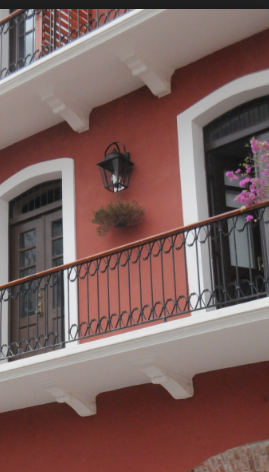
My Tía Adelaide at the End of Life
“Why so many Jeffrey Archer books?” I asked. My tía and I often talked about books of the more literary type.
“I have to find out what happens next!” Her Texas drawl was there still, a light undercurrent in the diminished volume of her voice.
I’d heard from my nieces and aunts who came up to her apartment once a week on “movie night” that my San Antonio tía—while she knew every character and nuance in a movie—would lose interest if the pace let up a little bit. A car chase was always welcome.
To my Jewish, Panama family who’d seen many cousin-to-cousin marriages, Adelaide was new blood when she arrived from San Antonio, Texas, in 1935 at only eighteen. She’d met and married Henry, my father’s best friend and third cousin. During earlier visits with my aunt when I’d fly to Panama for family, she’d revealed a long-held secret. After my father’s first heart attack, he’d asked Adelaide and Henry, “If something happens to me, would you consider adopting my children?” My mother had been in and out of psychiatric institutions for several years, and my father was worried about her ability to take care of us. I was stunned by this news at the time. My father had died when I was eleven.
“What did you say,” I asked cautiously.
“We told your father we would.” Tía Adelaide never embellished her words, and I liked her for that. Though my father died a young man, my siblings and I were able to live with our mother within the loving embrace of an entire clan.
On this recent visit, I felt close enough to my tía to ask, “What makes life worth living, tía Adelaide? What do you like to do at 102?”
In her straight-up talk that I attribute to her Texas, roots, she said, “I like to do everything! But, I can’t even get up to rearrange the flowers on the vase.” This was a telling detail coming from the artist that she was. The oxygen canisters were heavy, she fell often, and needed an attendant at all times. “I’ve lost all privacy.” Complaint and acceptance had wed. “It’s the way life is now.”
“Do you go to Temple on Fridays?”
“I can’t fold myself up in Carlos’ small car any more.” She and my Uncle Henry had acted as surrogate parents to my brother Carlos when he was a teen, and he and his family were now lovingly attentive to her. Life moves fast in the lively city of Panama, but the old remain part of the fabric that is family.
* * *
Short of 103 by three months, tía Adelaide died peacefully at home two months after my visit. Accustomed to death as part of a large, extended family, they mourned her as a community. In spite of the painful loss, the community soothes itself and reaffirms life. My San Antonio tía was not a matriarch in the usual sense. She didn’t leave children and grandchildren to add to the breadth of the family tree. Her gift was longevity, her mental resilience. With other elders in the family she was the keeper of stories, a symbol of the tribe—and remains so. “Keep writing,” were one of the last things she said to me. Friendship and curiosity were her talents, dear gifts from one woman to another.
______________________________________________________________________________
Marlena Maduro Baraf has a knack for raising orchids. She immigrated to the United States from her native Panama, and her writing is colored by this dual identity. Her memoir, At the Narrow Waist of the World, is forthcoming in the fall of 2019.
One comment on “My Tía Adelaide at the End of Life”
Comments are closed.




Poignant and inspiring… Love this!